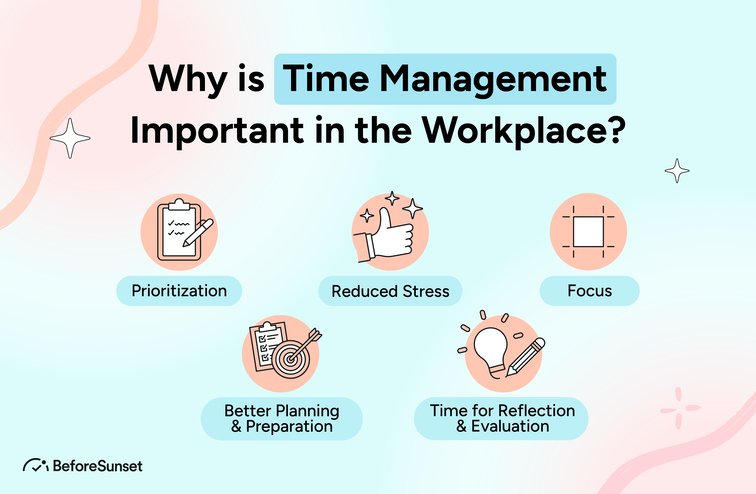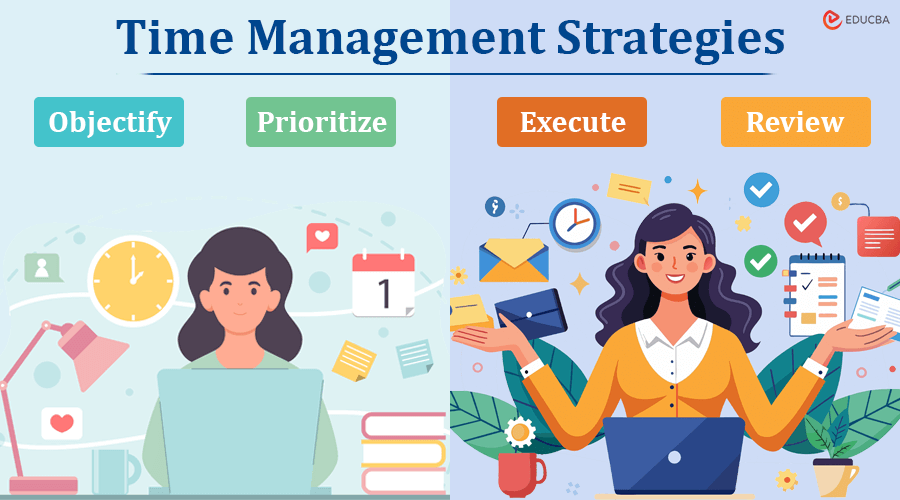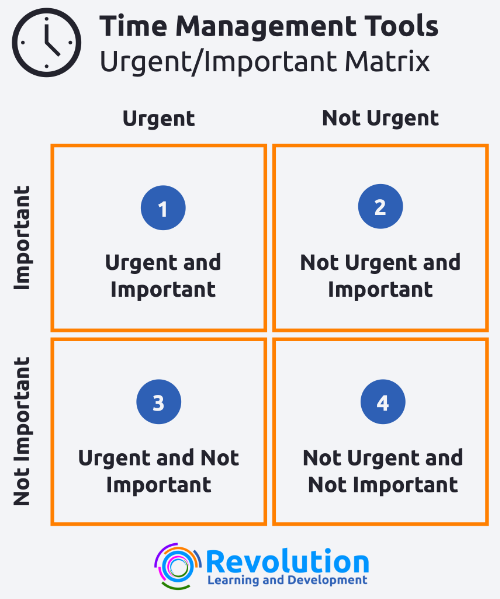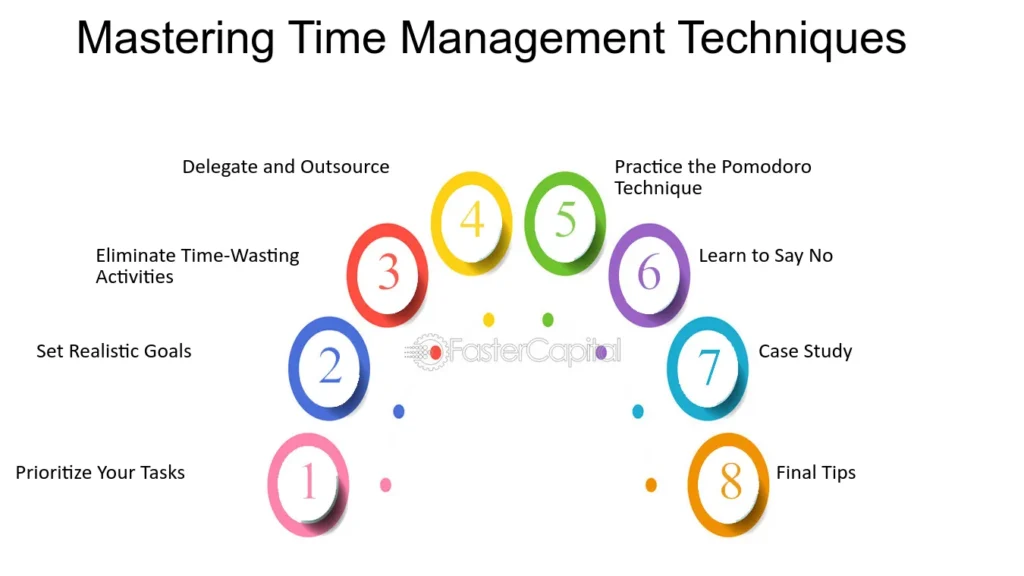Time forms the very basis of all human activities, the huge egalitarian that 24 hours a day is shared equally among everyone. The secret is to organize one’s time management; some people get big paybacks of their time, while others cannot. Are you ready to develop effective time management skills to take control of your life? This ultimate guide shall teach you how to use these strategies, tools, and insights to maximize your time for success in life and business.
Why Is Time Management So Important?
Time management is much more than productivity. It’s about finding balance, reducing stress-or just living more consciously. Whether you are a student, entrepreneur, or working, good time management will help you:
1. Set Your Goals: Decide what’s most important to you and focus on it; this way, you will make gradual progress towards your goals.
2. Productivity: Do not waste your time on inconsequential matters; get it done.
3. Stress Management: Well-organized days mean few surprises and last-minute stress.
4. Boost Work-Life Balance: Spend meaningful time doing what matters most to you in life-family, health, and hobbies.
Proven Time Management Strategies
1. Set SMART Goals.
Being the most common source of setting out time management processes, goal setting must be as clear as possible. Write your goals by way of a SMART framework:
- Specific: Select specifically what you want to achieve.
- Measurable: You can always gauge and keep track of the progress using some metrics or measurable numbers.
- Achievable: Be realistic with your expectations.
- Relevant: In line with your bigger picture.
- Time-bound: Set deadlines to your goals.
As opposed to saying, “I want to work out more,” it should go something like this: “I will work out for 30 minutes, 5 days a week, for the entire next month.
2. Generally prioritize tasks using the Eisenhower Matrix.
Not all tasks can be equally important. You need to sort them out using the Eisenhower method:
1. Urgent and Important: Do them first.
2. Important but Not Urgent: Schedule later.
3. Urgent but Not Important: Delegate to others wherever opinions allow.
4. Not Urgent and Not Important: Scratch them off the to-do list.
This will ensure you are concentrating on doing what’s really important and not wasting time on activities that are meaningless for your goals.
3. Plan your day ahead.
Successful people do not wake up every morning wondering what their next tasks would be. Take 10 minutes every evening and plan your next day: pick your top three priorities, and give each activity a time slot. Use digital tools such as Google Calendar or an app such as Todoist to track.
4.Use the Pomodoro technique.
The Pomodoro technique is a time management technique to keep you focused and free from burnout. Work for a period of 25 minutes followed by a five-minute break. After the fourth cycle, take longer breaks which range between 15 to 30 minutes. This has been widely used to enhance focus and reduce procrastination.
5. Cut down the time-wasters.
Conduct an audit of what you’re spending most of your time on during the day. Common time-wasters are the following:
Excessive time spent scrolling on social media.
Unproductive meetings.
Multitasking results in lower yield.
Replace time-wasters with purposeful activities in alignment with your goals.
6. Delegate and Outsource
You cannot do everything all by yourself, and that is fine. Just let go some tasks to others or outsource time-consuming chores. This gives you ample time to work on high-value activities.
7. Learn to Say No
Every “yes” is a “no” to something else. Protect your time by saying no—polite but firm—to commitments that don’t align with your priorities.
Powerful Time Management Tools
Trello: Great for task organization and project tracking.
Google Calendar: Schedule meetings, deadlines, and reminders.
Rescue Time: Analyzes your daily habits in order to identify inefficiencies.
Notion: A customizable all-in-one workspace for notes, tasks, and projects.
Focus Booster: Seamlessly implements the Pomodoro Technique.
These tools will change the way you structure your days.
Reinforcing the Benefits of Mastering Time Management
More Productivity: Do more in less time.
Less Stress: Control of life eliminates the anxiety and overwhelm.
More Free Time: Working business-like enables free time for fun and hobbies.
Decreased Shift of Focus: Being able to stay concentrated on important stuff works wonders for productivity.
Improved Relationships: Less stress leads to being present with family, friends, and coworkers.
Real-Life Examples of Successful Time Management
1. Elon Musk
Known for running multiple companies, Elon Musk plans his day in 5-minute intervals in order to make the most of it.
2. Oprah Winfrey
Oprah focuses on life like living with an intention, awakening in the morning for self-reflection and planning her tasks around the most important things.
3. Serena Williams
With a tough sports schedule and balancing personal life, Serena has strong routines by which she has been able to accomplish where she is today.
Familiar Problems and Solutions
Procrastination
Solution: Try and break tasks into smaller steps and do the easiest one first to get momentum.
Distractions
Solution: Set up a productive environment by shutting off notifications and boundaries.
Overcommitment
Solution: Acknowledge priority and learn to say no to non-essential action.
Start Taking Charge of Your Time Today
Time management is the key to your potential and success. Assign clear tasks, prioritize, and make every minute count by acting on various strategic tips.
Always remember: You have nothing more valuable than a moment in time. Take charge of your time today, and watch your productivity go up, stress levels go down, and your dreams become more accessible.









